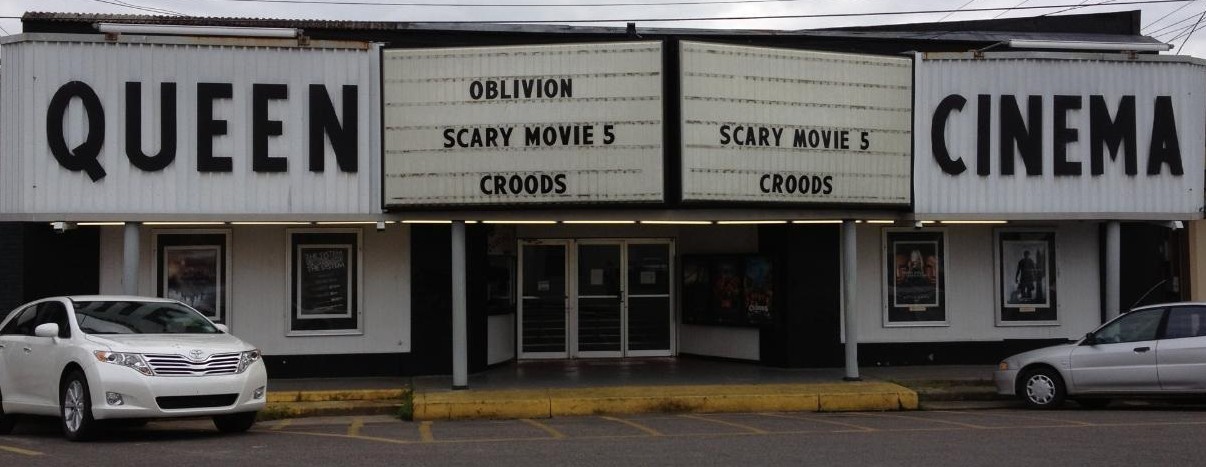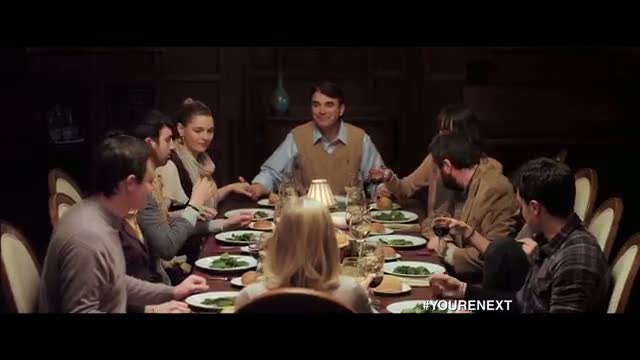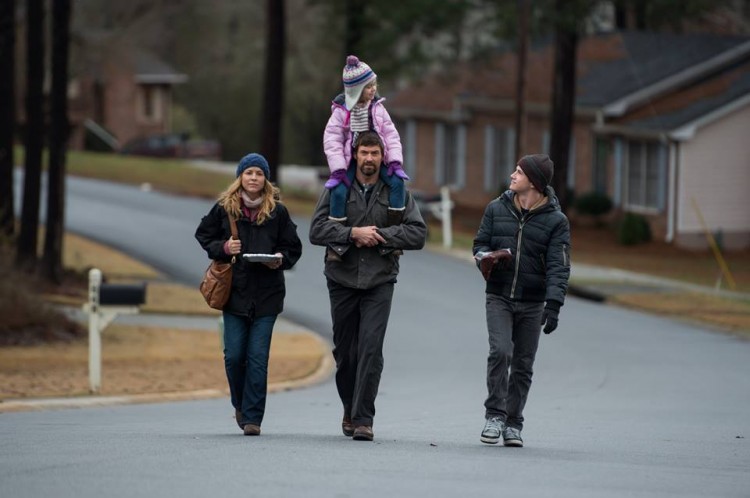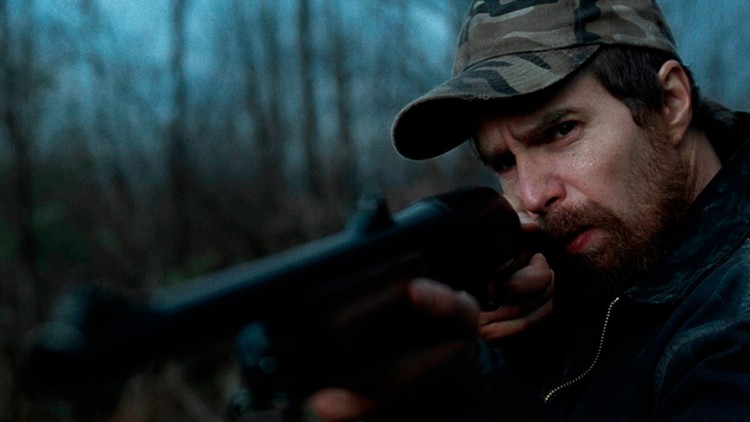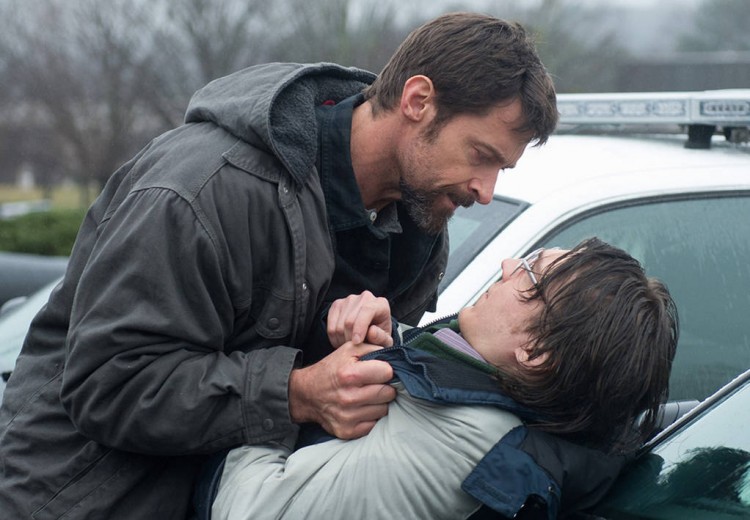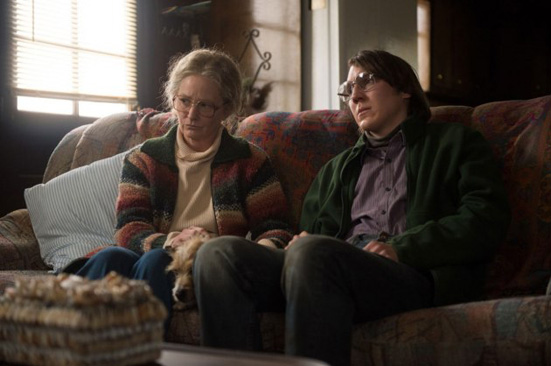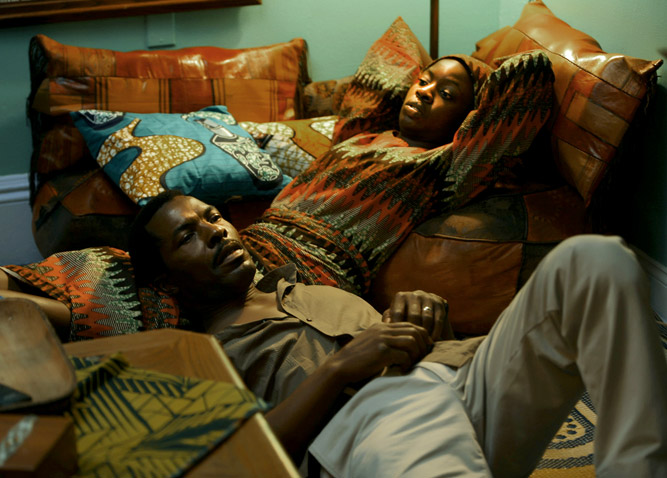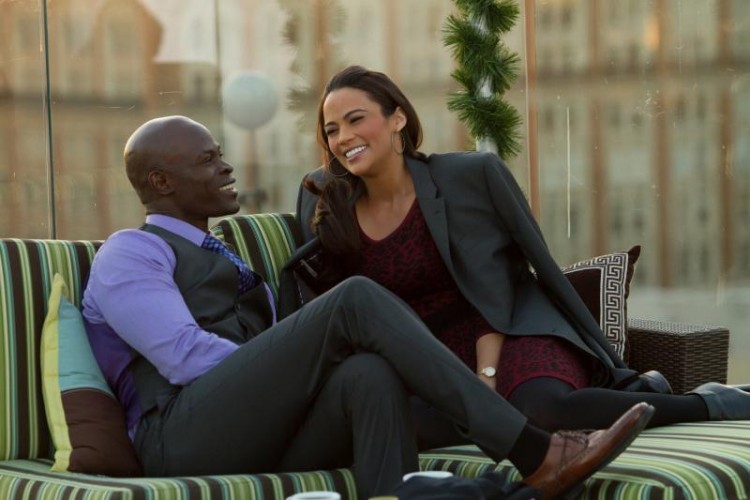The movies have always relied on screwed-up families for stories, but I can’t remember seeing as many on that subject as I have recently. They make “The Family,” adroitly discussed below by Henry, look well adjusted. And not just mainstream, genre, or Hollywoodish movies, like “You’re Next,” “Prisoners,” “A Single Shot,” and “Baggage Claim.” but also Indie films like “Mother of George” and “We Are What We Are.” So is the nuclear family undergoing a crisis these days? Probably, but when isn’t it? But I think the prevalence of such movies reflects a crisis experienced by society at large, of which the family is the smallest unit, a microcosm of what’s going wrong in general.
These kinds of extrapolations always get me in trouble with people who deny such close connections between real life and the world on the screen. After all, these films are developed sometimes years in advance of their release. Are the filmmakers psychic, then, and can predict what the hot issues will in the future? And then, of course, there’s the usual– “it’s only a movie.”
But how does one account for the fact that both “Prisoners” and “A Single Shot” open and close with nearly identical scenes? Both begin with the protagonist hunkered down in a wintry forest with a rifle, setting up a shot on a deer.
Both end with the protagonist trapped in a deep pit, literally or figuratively, of his own making. I think what transpires between these two scenes can be read as a commentary on the audience’s subconscious anxieties about domestic security in general, about what threatens it, what should be done to protect it, and what the moral ramifications of such measures might be.
In both films the father either initiates or exacerbates the threat to his family by his macho behavior In “A Single Shot,” the protagonist John Moon (Sam Rockwell), a marginal recluse type with survivalist tendencies, finds himself in a moral dilemma after the title discharge, and his poor judgment, driven by greed and a desperate need to restore his broken family, directs him to action that not only compromises him morally but also makes the situation worse.
In “Prisoners,” on the other hand, the pater familias Keller Dover (Hugh Jackman) lives in a more upscale middle class neighborhood. But he also has the makings of a militiaman, what with his basement stockpile of goods and ammo in preparation for some apocalyptic social breakdown. Unlike Moon, he does not actually initiate the crisis – the kidnapping of his and a neighbor’s daughter – but he certainly doesn’t improve the situation by resorting to extraordinary rendition and enhanced interrogation of the chief suspect
(i.e., he chains him to a radiator and beats the shit out of him to get him to talk).
“A Single Shot,” seems to suggest the notion that, like Moon, America is responsible for its own troubles, having instigated terrorist assaults through their own indiscretions in foreign policy. And in “Prisoners,” the subtext suggests that though the US does not bear any responsibility for the woes inflicted on them by outside evil-doers, it can be faulted for its poorly thought out, heavy-handed response, which seems only to have made matters worse.
Whether these subtexts were intended, or even exist, seems moot at this point. They did not resonate with audiences. “Prisoners” has grossed to date about $49 million, but since it cost $46 million to make and who knows how many millions to promote and market, it hasn’t been a winner. As for “A Single Shot,” it made around $16, 000 bucks, which might cover catering costs.
Perhaps the two movies got stiffed by audiences because they both engage in the never popular practice of male-bashing and discrediting the patriarchal roots of American society. In which case “Prisoners” gets a raw deal, because [and this involves really major spoilers] the ultimate culprit proves to be that archetypical bad guy, the wicked matriarch. Yes, behind every bad or mixed-up man is an evil woman.
“Prisoners” doesn’t reveal the gender of the real culprit until near the end. But a couple of the other films mentioned above don’t beat around the bush, but put the blame on a woman from the get-go.
In Andrew Dosunmu’s “Mother of George,”
set in a sumptuously rendered Nigerian community in Brooklyn, a woman fails to bear a child for the easy-going restaurant owner who brought her over from Africa for that purpose. Though it’s clear that the husband is shooting blanks, his termagant mother badgers the wife, subjecting her to potions and charms and finally insisting that she commit an act that is duplicitous, but effective. To the mother-in-law’s credit, however, she is nominally acting in the service of a male-dominated system.
In David E. Talbert’s “Baggage Claim,” another woman, a flight attendant named Montana (Paula Patton, whose appeal escapes me),
is berated by mom for failing her gender responsibility of getting married, settling down, and having kids. She takes drastic measures to get with the program, but the situation is made more urgent when her younger sister gets engaged. So Montana sets off to revisit her various exes across the country (though not, and perhaps this was intended ironically, in Montana) to see if maybe she overlooked something the first time around, and come up with her own beau when the wedding takes place in 30 days. Kind of like Bill Murray in “Broken Flowers,” except offensive and stupid.
What a surprise when Montana realizes that you don’t need a man to define who you are, unless you mean Mr. Right, who turns out to be right under her nose! As for mom, sure she was a tyrant (and a bit of a castrating man-eater, as she has been married and divorced six times) determined to destroy her daughters’ lives, but she had the best intentions at heart. Plus, she’s family. So, hugs all around. Even Djimon Hounsou’s billionaire hotelier – who is inexplicably smitten with Montana and wants to underwrite her freedom and pretty much her every desire but will not marry her
– has to admit that all turns out for the best.
And it turned out pretty well at the box office, as the film ended up grossing $16 million, or about twice what it cost to make. So maybe the state of the family is not so bad after all.
